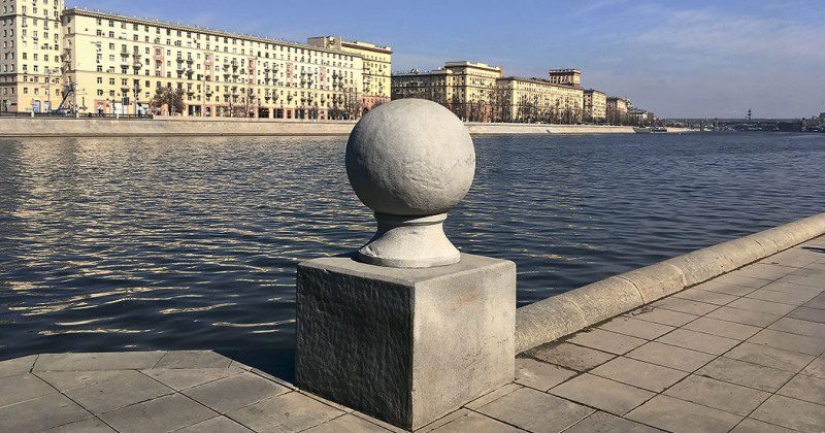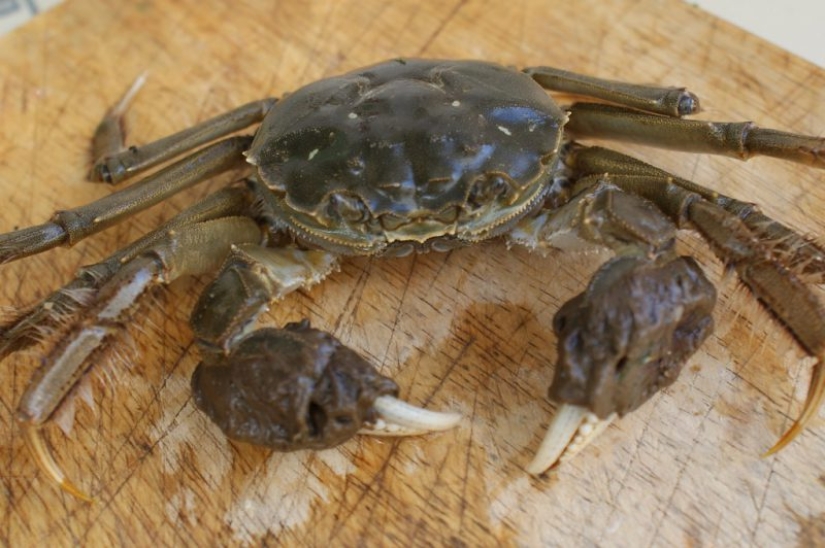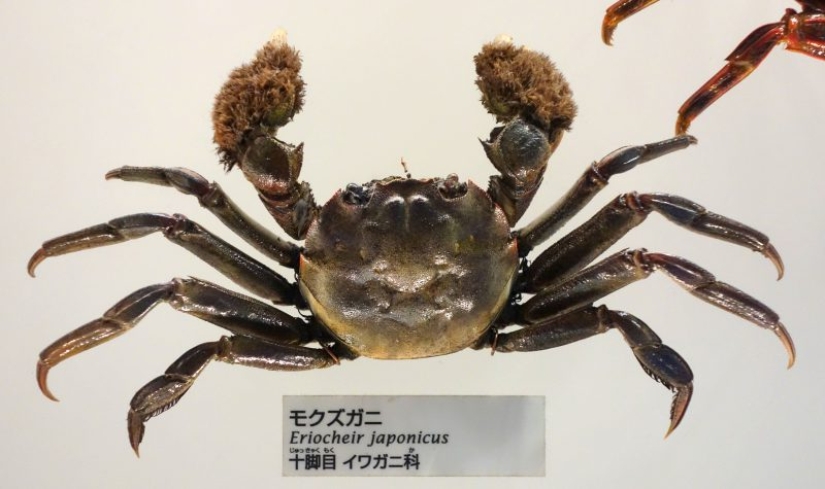A dangerous guest for fish and humans has been found in the Moskva River
Categories: Animals | Asia | Nature
By Pictolic https://pictolic.com/article/a-dangerous-guest-for-fish-and-humans-has-been-found-in-the-moskva-river.htmlIt's no secret that almost the entire periodic table can be found in the Moskva River today. This will not surprise anyone today. But the replenishment of the river flora, discovered recently, puzzled not only local fishermen, but also biologists. In the very center of the capital, Chinese furry-armed crabs were found, which were not expected to be seen there at all.

Chinese migrants were spotted in the Skhodnensky derivation channel and the Moscow River. Scientists believe that arthropods got into the capital's reservoirs from the Volga, where they have been more than enough for a long time. It seems like good news — crabs, and even in Moscow, but not everything is so simple.

Zoologists do not consider this event joyful at all, but, on the contrary, are very concerned. The fact is that Chinese shaggy—armed crabs are a so-called invasive species, dangerous for other inhabitants of the reservoir. These arthropods feed on organic remains, mollusks, fish eggs and young crayfish, so the active reproduction of such crabs seriously threatens the river fauna. Chinese crabs also damage dams with their burrows, tear fishing nets.

In China, such crabs are considered a delicacy and millions of individuals are caught annually for cafes and restaurants. At the same time, eating them can be dangerous, since this inhabitant of reservoirs is an intermediate host of a parasite dangerous to humans — the pulmonary fluke.
For the first time in the rivers and lakes of Europe, a guest from China was discovered in 1912. Today crabs can be found in Germany, France, Holland, Belgium, Sweden, Finland, Portugal and Poland. They are also found in North America, although so far in small numbers. In Russia, fur-armed crabs appeared in 1998 in the Black Sea, then in Lake Onega and on the Volga.

Until recently, the Moskva River managed to avoid the fate of many other rivers, but now scientists will have to deal with this problem in order to prevent a catastrophe in the river ecosystem.
Keywords: Disaster | Crabs | Moscow | River | Arthropods
Post News ArticleRecent articles

It's high time to admit that this whole hipster idea has gone too far. The concept has become so popular that even restaurants have ...

There is a perception that people only use 10% of their brain potential. But the heroes of our review, apparently, found a way to ...
Related articles

It is now the so-called Khrushchevki khayut and threaten to level with the ground. And 50 years ago, these squat houses saved the ...

A resident of Russia has a question "And who will do this for you? Pushkin? " does not cause the slightest surprise. Everyone ...

Russian freelance artist Nikolai Kurganov draws girls. No, he is not inspired by the images of sex bombs and vamp women-the ...

New Year's is a time to surprise and delight loved ones not only with gifts but also with a unique presentation of the holiday ...